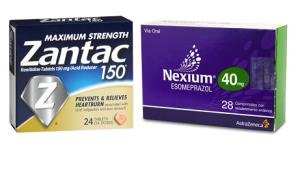Pharmacist: Huda Jassim Muhammad
College of pharmacy
Tyrosine kinase inhibitors interaction with gastric acid reducing agents and some recommendation to overcome this interaction
Tyrosine kinase inhibitors TKIs such as (Dasatinib, Erlotinib, Gefitinib, Imatinib) show a high selective toxicity towards the cancer cells with minimal side effects. They have a superiority in the treatment of chronic myeloid leukemia, non-small cell lung cancer, renal cell carcinoma than traditional antineoplastic agents(1). Since the TKIs are administered orally, they offer great flexibility for the patient. However, the oral route can cause a drug interaction with the acid reducing agents. This interaction is mainly due to their pH-dependent solubility behaviors in physiological pH range (2). The solubility of TKIs is high in a low pH environment with poor solubility in neutral to alkaline medium. The acid reducing agents such as proton pump inhibitors (PPIs) or histamine H2-receptor blockers are prescribe for almost 50% of cancer patients (3). PPIs are considered the most widely prescribed drugs for gastroesophageal reflux, peptic ulcer, prevention of gastrointestinal bleeding when combined with non-steroidal anti-inflammatory drugs and Zollinger–Ellison syndrome (4).
The acid reducing agents increase the gastric pH which can decrease the solubility of the TKIs when taken together, resulting in low absorption, bioavailability, and sub-optimal clinical outcomes. Due to such significant interaction, the gastric acid reducing agents withdrawal are recommended (2, 5, 6)
Pervious research showed the administration of some TKIs with acidic beverages like Coca- Cola or apple juice resulted in clinically significant increase of absorption and bioavailability during PPIs therapy by decreasing the stomach pH temporarily or by increasing the solubility of the drug itself (7, 8). Therefore, administration of TKIs with acidic drinks can overcome the interaction with the acid reducing agents.
References
1. Jiao Q, Bi L, Ren Y, Song S, Wang Q, Wang YS. Advances in studies of tyrosine kinase inhibitors and their acquired resistance. Mol Cancer. 2018;17(1):36.
2. Van Leeuwen RWF, Jansman FGA, Hunfeld NG, Peric R, Reyners AKL, Imholz ALT, et al. Tyrosine Kinase Inhibitors and Proton Pump Inhibitors: An Evaluation of Treatment Options. Clinical Pharmacokinetics. 2017;56(7):683-8.
3. Smelick GS, Heffron T, Chu L, Dean BJ, West DA, Duvall SL, et al. Prevalence of acid-reducing agents (ARA) in cancer populations and ARA drug-drug interaction potential for molecular targeted agents in clinical development. Molecular pharmaceutics. 2013;10 11:4055-62.
4. Uchiyama AAT, Silva PAIA, Lopes MSM, Yen CT, Ricardo ED, Mutão T, et al. Proton Pump Inhibitors and Oncologic Treatment Efficacy: A Practical Review of the Literature for Oncologists. Current Oncology. 2021;28(1):783-99.
5. Suttle AB, Ball HA, Molimard M, Hutson TE, Carpenter C, Rajagopalan D, et al. Relationships between pazopanib exposure and clinical safety and efficacy in patients with advanced renal cell carcinoma. British Journal of Cancer. 2014;111(10):1909-16.
6. Verheijen RB, Swart LE, Beijnen JH, Schellens JHM, Huitema ADR, Steeghs N. Exposure-survival analyses of pazopanib in renal cell carcinoma and soft tissue sarcoma patients: opportunities for dose optimization. Cancer Chemotherapy and Pharmacology. 2017;80(6):1171-8.
7. van Leeuwen RW, Peric R, Hussaarts KG, Kienhuis E, NS IJ, de Bruijn P, et al. Influence of the Acidic Beverage Cola on the Absorption of Erlotinib in Patients With Non-Small-Cell Lung Cancer. J Clin Oncol. 2016;34(12):1309-14.
8. Shimada T, Okano M, Yamada M, Ogawa Y, Ueda A, Nagase K, et al. Administration of erlotinib in apple juice overcomes decreased absorption in a rat model of gastric acid suppression. Drug Metab Pharmacokinet. 2020;35(6):534-8.






























































